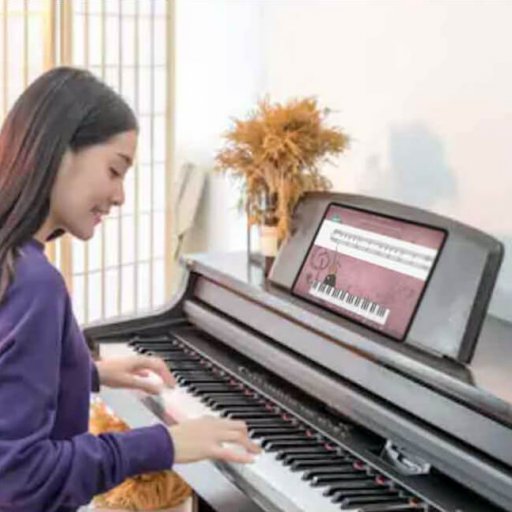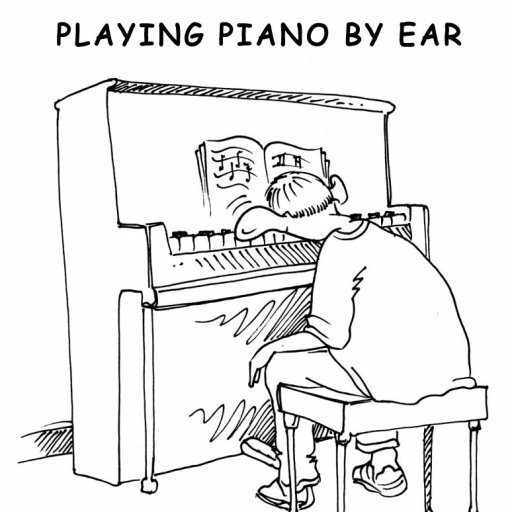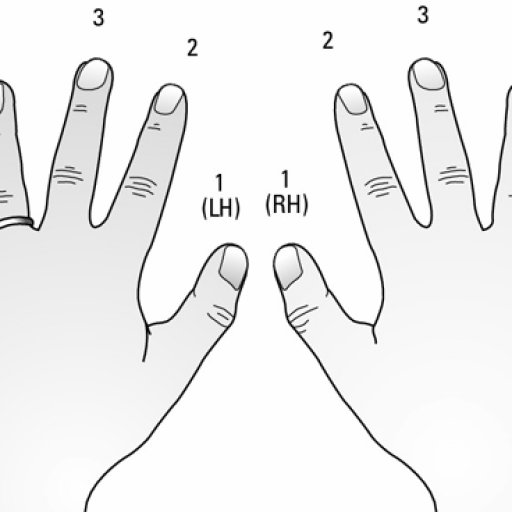Piano Practice Tips For Parents — Part 2 of 2
 So you've made your decision as a parent - you've decided to start your child on piano lessons. What can you do to support and encourage them, particularly when they don't want to practice or when they want to give up?
So you've made your decision as a parent - you've decided to start your child on piano lessons. What can you do to support and encourage them, particularly when they don't want to practice or when they want to give up?
The key to a lot of this is anticipation, i.e. putting measures in place in advance to create a dynamic in your home that is conducive to learning, in this case learning piano.
The No. 1 Mistake Parents Make
Without a doubt the number one mistake parents make when starting their kids on piano lessons is pointing them at the piano and leaving them to it... and expecting everything will work out automatically. But the reality is that it's simply not realistic to think that you as a parent will not need to support and encourage your child.
Yet, particularly in the subject of learning piano, many parents often shy away from active encouragement and involvement partly because they understandably feel that they don't know enough about piano / music and therefore cannot help their children.
So the child is sent to practice the keyboard or piano unsupervised in one room of the house, while the parent is in another room busily preparing dinner or performing some other necessary task that provides the perfect justification for opting out of sitting with the child, at least occasionally, and taking an active interest.
Now believe me when I say, I'm not sitting in judgement. I admire anyone who makes the decision to take on that most challenging of roles — parenthood. But having taught piano in countless homes over the years, I've seen many homes and family dynamics that are conducive to learning, as well as many that are not.
How To Encourage Your Child To Practice Piano
By far, the number one thing you can do to support and encourage your child to practice and to encourage learning (generally) in your home is to lead by example… Remember earlier I said that parents often feel they can't help their child because they don't know enough about music themselves?
With Musiah, this need never be an issue again, because with Musiah up to 6 people per household can learn. So parents, if you really want to create a dynamic that is conducive to learning in your home and encourage / support your child on their musical journey, there is no better way to achieve this than by learning piano with Musiah yourself (at least for the first level).
That way you are demonstrating to your child:
- You value learning; and
- You are interested in what they are learning in their piano lessons with Musiah. Also:
- You have the perfect opportunity to demonstrate the habit of discipline, regular practice, etc.
- And you can even create a bit of healthy competition between you and your child.
- Plus, by doing the lessons yourself, you will most definitely have the knowledge to help your child with their piano learning.
Additionally, here are some small simple extra things you can do to encourage piano practice in your home:
Short Practice Sessions
Instead of saying to your child that they need to practice piano 30 mins a day, 5 days a week, aim for something smaller, say 10 mins a day 5 days a week. Once a student sits down at the piano to do 10 mins, they will quite often continue for longer. By contrast, 30 mins seems a lot more daunting, so students will be more likely to not practice at all.
Create A Piano Practice Chart
As an example, let's say 10 mins is the minimum amount of piano practice your child is required to do, but if they do 15 mins piano practice they get a gold star on their chart. Once they've collected 25 stars you'll take them to the movies. By all means, vary the reward and the required number of stars to suit you, this is just an example.
Practice Piano At The Same Time(s) Each Day
Establish a regular time for piano practice each day, e.g. you might establish a routine where your child practices piano each day while you are cutting up the vegetables for dinner / washing up the dishes after dinner. (If they don't practice, then perhaps they should help with the preparation / washing up.) Other families find that 10 mins in the morning before school and 10 mins in the evening after school works well. There is no one right way to do this. You'll possibly try a few different approaches until you find the one that works best for your family.
Set The Piano Up In A Prominent Position In Your Home
Remember that "out of sight is out of mind", so set the piano or keyboard up in a prominent position in a room that is close to where you / the family spend much of your time, e.g. in the family room, next to the kitchen. So it will become easier to ask your child to practice piano for say 10 mins while you prepare dinner, and you can keep an eye on them / listen in while you are doing other things.
Multi-tasking (as per the above example) is OK, but make a point of sitting with your child regularly during their piano practice to show that you are interested in what they are doing.
Encourage your child to play piano for you regularly
Every so often, ask them to prepare a small recital for you, perhaps a program of three piano pieces. You can do this any time that you feel is right, e.g. set them this task at the start of a week and tell them that the recital is to take place on Friday evening, so they have a few days to prepare. Playing for visitors is also a perfect reason to hold a mini piano recital.
The Simpsons Rule
Encourage your child to watch The Simpsons (or whatever their favourite t.v. show is) provided they meet one condition – namely that they must practice piano from the start to the finish of every commercial break during the show. If they don't meet this condition, then they don't get to watch the show.
So that's it folks... My tips for encouraging your child to practice piano. Whether you try one, two, or all of these suggestions, they'll definitely make a difference in your home.
And of course, to begin your (or your child's piano lessons), why not take our Musiah Piano Lessons 14 Day Free Trial.
Thanks for reading,
Brendan Hogan L.Mus.A., A.Mus.A.
Piano Teacher & Musiah Inventor
RECOMMENDED ARTICLES
Online Piano lessons – Do They Work?
Piano Lessons For Adults
Piano Lessons For Kids
Piano Lessons For Beginners
Advanced Piano Lessons
Free Piano Lessons (on piano technique)
The Best Piano Method
The Best Piano Learning App
Learning To Play Piano As An Adult – Why it's easier than you think!












